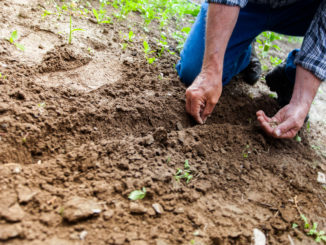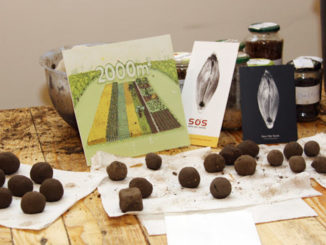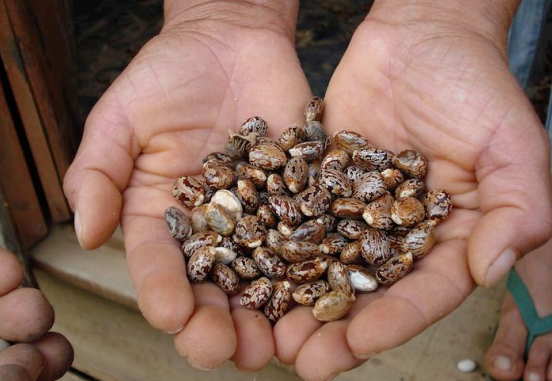
By Anton Vos
“The seeds regulation is unconstitutional.” A thesis from the University of Geneva’s Faculty of Law demonstrates that the system that decides which plant varieties can be sold in Switzerland contradicts other objectives of agriculture under the Swiss constitution, such as safeguarding the environment, landscape and local economy. By Anton Vos.
Lire cet article en français ici
When you think of illegal distribution, seeds aren’t the first thing that comes to mind. Much less seeds for food crops such as cereals, vegetables, fodder crops and fruits. Yet in Switzerland, as well as in the European Union which has a similar regulation, the sale, possession, delivery and handover to a third party of “plant propagating material” is prohibited. At least if it’s for professional use (private gardeners are exempt) and more importantly, if the material is of a variety not listed in an obscure catalogue (Catalogue national des variétés) of which few people know the existence.
The complexity of the rules surrounding this catalogue has mounted in recent decades. It’s become a legal and administrative ‘Gordian knot’ that Camille Valier, a researcher at the University of Geneva’s Department of Public Law, set out not to cut but to untangle, strand by strand, to elucidate its intricacies. A pioneer in the subject, she accomplished this task in the guise of her thesis at the Faculty of Law, which she defended in January and should be published this autumn (available in French here). The key conclusion of her work, beyond this salutary task of clarification, is that “the Swiss seeds regulation does not sufficiently protect the environment and human health and infringes on the economic freedom of various actors involved in the growing and production of these seeds.” Worse, the Swiss seeds regulation may well be unconstitutional.
“When I started my thesis, I didn’t know exactly what I was getting into,” confesses the researcher. “I spent the whole first year unpicking the legal tangle around the seeds regulation in order to make sense of it. I realised that that had never been done before. Nobody knew what was allowed and what wasn’t. Until the last moment, I myself wasn’t convinced I had a perfectly correct view of the situation.”
It transpires that Switzerland’s seed trading regulation is not strictly speaking a law. In the Agriculture Act (Loi sur l’agriculture) the only reference in this regard stipulates that, “for certain species, the Federal Council may prescribe that solely the varieties registered in a catalogue of varieties may by imported, circulated, certified or used in Switzerland”. Then it’s the ordinances relating to the chain of production that indicate who within the Federal Office for Agriculture (Office fédéral de l’agriculture, OFAG) promulgates this catalogue, in which appendix it can be found, what are the criteria to register a variety, who makes the decisions, what are the penalties, etc.
Nonetheless Vallier found no cases of penalties being applied. It seems that the Swiss system is, on this matter, more consensual, preferring to seek amiable solutions rather than penalise.
“Even the farmers I consulted have a fairly hazy idea of what they are and aren’t allowed to do,” explains Vallier. “Agronomists were able to explain to me why a certain technical term had been added to this or that ordinance. But not much more than that. Nobody has an overview, but everyone seems satisfied with a fairly vague system. There’s no rule that states black on white that seeds not registered in the catalogue can’t be circulated. Instead, you get cross-references from one rule to another. When a specific term is used in one place, it’s another legal instrument that explains it. Then it’s yet another cross-reference that specifies certain authorisations, and so on. My work, at one point, was like a treasure hunt.”
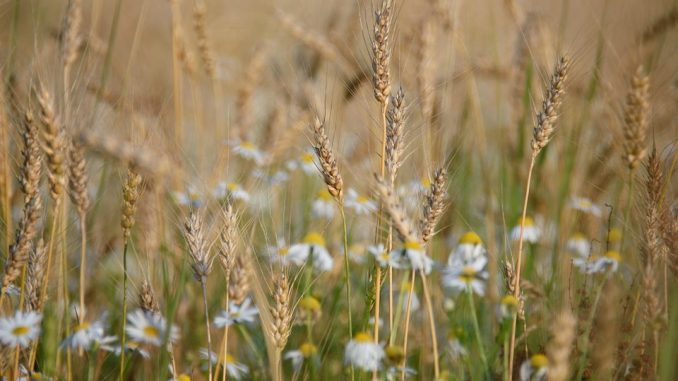
Feed the people
The problem is that the current system perpetuates a now outdated vision of agriculture that dates from the first half of the 20th century. At that time, shaken by two world wars, Switzerland made being able to feed its people a matter of priority. From the 1950s onwards, it banked on crop varieties that were disease resistant and allowed greater yields, with a view to ramping up agricultural production and attaining the greatest possible degree of self-sufficiency. The authorities encouraged small farmers to use these varieties as well as the inevitable plant protection products and fertilisers that accompanied them. A first version of a seeds ledger (Livre des semences) emerged in these years and gave birth to a fully fledged register in 1974. The term “catalogue” (see below) was adopted in 1995 when Switzerland harmonised with European Union legislation.
To this day, the criteria for a new variety to be added to the catalogue lean towards a single and intensive model of agriculture. The variety must have stable and uniform properties. But the properties themselves are telling. Priority is given to yield, resistance to disease and cold, and compatibility with agricultural mechanisation – a wheat variety’s suitability for baking, or the uniform height of corn stalks to facilitate harvesting. Plus the new variety must be, in terms of all these criteria, better than the existing varieties in the catalogue.
“These criteria were consistent with the single objective of agricultural policy at the time,” comments Vallier. “Today the legislative framework for agriculture has totally changed and other imperatives have to be taken into account. A turning point was in 1995 with the adoption of a new article in the constitution. Since then, as well as ensuring security of supply to the population, agriculture has to meet requirements relating to sustainable development, conservation of natural resources, preservation of the rural landscape, maintaining the local economy to reduce the rural exodus, and so on. These functions can’t be dissociated from one another.”
After mapping out the Swiss seed regulation, the researcher subjected it to a rigorous legal analysis, consisting to a large extent of weighing up the interests and demonstrating the disproportionate nature of certain restrictions. While pushing agricultural production to the maximum of technological possibilities may have been justified in the 1950s and 1960s, this is not at all the case today with regard to Switzerland’s other commitments. Food self-sufficiency is a pipe dream (only 60% for Switzerland). And intensive agriculture, at global but also national level, has largely contributed to environmental destruction, climate breakdown (it’s responsible for 13% of greenhouse gas emissions), damage to health (via the use of pesticides), the gradual disappearance of small farms, etc.
At the same time, we now know that we can produce less without endangering the survival of the population – even if it continues to grow. Agriculture’s current problem is not supplying enough food (it produces too much – a third of food is wasted in Switzerland and 20% worldwide) but that this food is not distributed fairly. What’s more, farming methods that are less intensive and more sustainable can be just as productive, while upholding the other imperatives.
“I come to the conclusion that the seeds regulation as it is applied today is clearly disproportionate with regard to the goal envisaged,” notes Vallier. “It is no longer in the public interest; the choice to produce increasingly more is in conflict with the other objectives set out in the Constitution. In other words, it is now unconstitutional.”
The researcher points to a number of potential ways to resolve this paradox, supposing that lawmakers should want to address this to say the least complex question. Limits on niche crops (see below) could be lifted. Certain niche crops could thus be eligible to be registered in the catalogue if they are scaled to a certain degree. The criteria for registration could be relaxed or amended with a view to steering agricultural policy towards more sustainable land management. But Vallier estimates that it would be unreasonable to simply deregulate everything. In her view, it is important to retain a system of quality control to protect consumers as well as small-scale farmers, who could suffer from the use of unsatisfactory varieties in the event that harvests are lost.
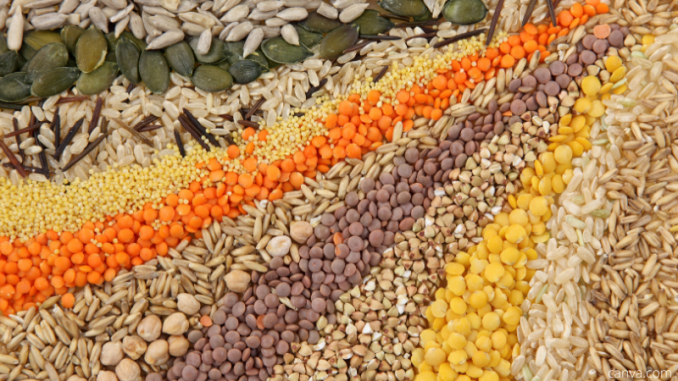
The catalogue and niche varieties
Initially the National Catalogue of Varieties (Catalogue national des variétés) only contained species that were indispensable to the country’s survival – essentially cereals. Other species were gradually added, including fruits, grapes and fodder crops, while the rules became ever stricter within a predominately administrative process.
Vegetables were added out of the blue in 2005. This was the result of Switzerland aligning with the European regulation as part of the Free Trade Agreements. In reality the Swiss catalogue contains no vegetable species, which are all listed in the equivalent European register; since there is an automatic mutual recognition of the catalogues, it did not seem necessary to ‘copy and paste’ them from one to another.
In 2010, the authorities opened a pressure valve of sorts by authorising the sale and use of so-called ‘niche’ varieties that were not necessarily registered in the catalogue. Niche varieties are rare and heirloom varieties that are often better suited to local conditions in a region. In this case, however, it’s the growing rather than the distribution that’s regulated: production of a niche variety is limited to 0.1% (by surface area or quantity, depending on the variety) of the overall production of the species.
“Philosophically, we would have preferred that there were no such limit,” remarks Denise Gautier, spokesperson for ProSpecieRara, an association working to preserve the genetic, historical and cultural diversity of crop and livestock breeds in Switzerland. “But in actual fact it doesn’t pose a problem for us since none of the niche varieties reach the limit, not by a long shot. More importantly we’re very pleased to have been granted an exemption thanks to a process of dialogue with the Federal Office for Agriculture. There’s no such exemption in the European Union regulation.”
This article was originally published in French by Le Courrier. Republished with permission. English translation by Louise Kelleher.
More on Switzerland
Shifting Subsidies in Switzerland – the Clean Drinking Water Initiative.
Too Much, Too Soon. Why Switzerland Voted Against a More Sustainable Food System



